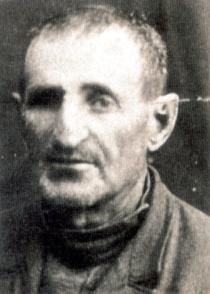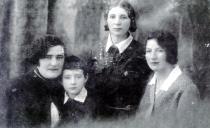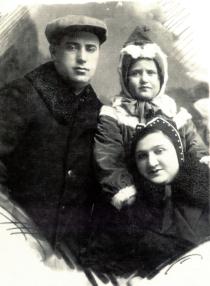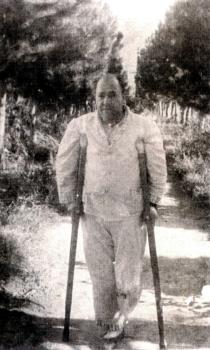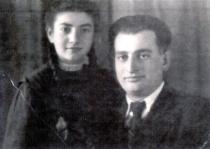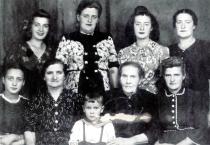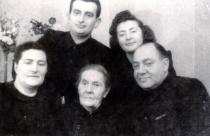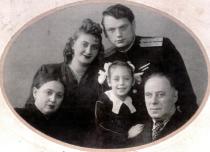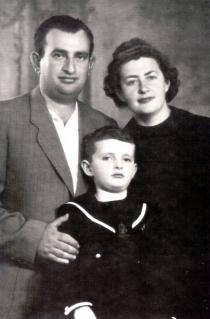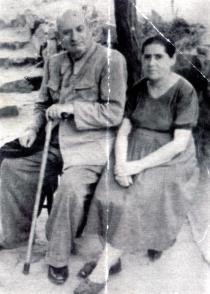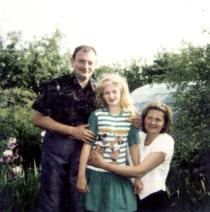This is a photo of my grandfather, Gersh Zastavkis, my mother's father. This photo was taken in Polonnoye in 1922 for my grandfather's identity card.
My mother's family lived in the village of Polonnoye in Kamenets-Podolsk district, in Vinnitsa province. My maternal grandfather, Gersh Zastavkis, was born in Polonnoye in the 1860s. He was a cabman. He had a cart and two horses which he kept in a small stable behind his house. My grandfather worked very hard, but the family was still very poor. My grandmother Sylka was younger than my grandfather. She was born in Polonnoye in the early 1870s. I don't know her maiden name. My maternal grandmother was a housewife. My grandparents had 11 children. They also adopted 2 children of my grandmother's brother. The boys in the family studied in cheder and the girls had a teacher teaching them at home. All the children finished the eight-grade lower secondary school in Polonnoye. I knew many of my mother's sisters and brothers. They were a very close family. There was a typical atmosphere of a Jewish family in their house, full of love and warmth. My mother's family was a model of generosity, care and love for me.
In 1941 my grandmother from Polonnoye joined us in Voronezh. She came with her neighbors who were evacuating from Polonnoye via Voronezh. My grandfather Gersh refused to go with her. He loved his house and his horses and couldn't leave them. Besides, he had known Germans during World War I and believed them to be civilized people. He tried to convince my grandmother that the Germans were going to struggle only against the communists. But my grandmother wanted to be with her children and grandchildren.
When Vinnitsa was liberated in 1944, my grandmother wrote my grandfather in Polonnoye. She was planning to go home. She received a response from their neighbors in Polonnoye. They wrote that their Ukrainian neighbors had been hiding my grandfather in Polonnoye for two years during the occupation. In 1943 somebody betrayed them to the Germans. The Germans shot the Ukrainian family for hiding a Jew and threw my grandfather under a train. This was a terrible thing to hear. Of course, we read in the newspapers and heard on the radio about what the Germans were doing in the occupied areas, but the tragedies were still something distant. This time the tragedy affected our family.

